No products in the cart.
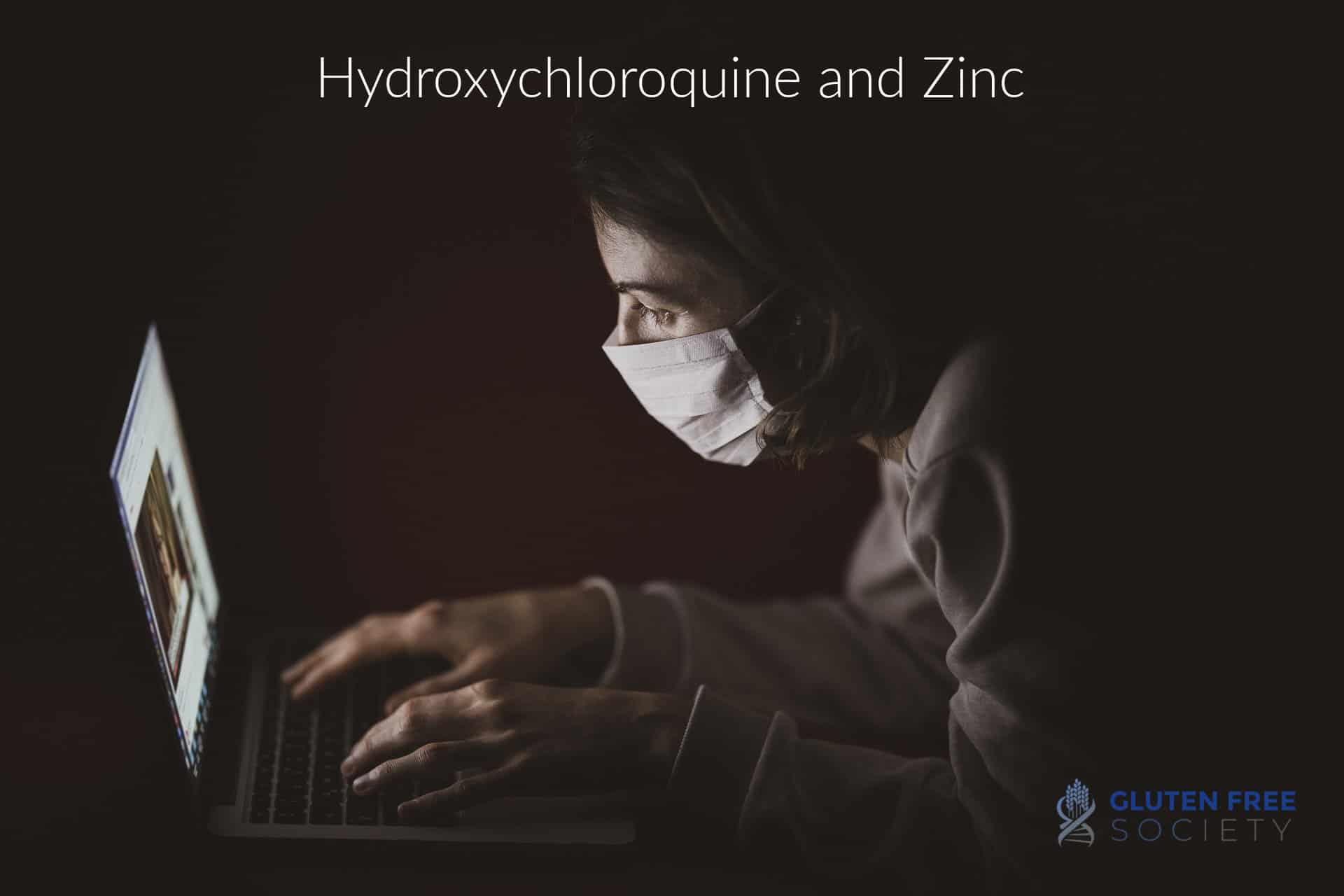
With no cure for COVID-19, many doctors and researchers have been scrambling to find a way to treat it. One of the medications touted by some media outlets as a miracle drug is called hydroxychloroquine, which is most commonly used to treat and prevent malaria. While many have attributed their healing to this drug, it’s important to know that there are side effects that can have long-lasting and even permanent side effects.
How Does Hydroxychloroquine Work?
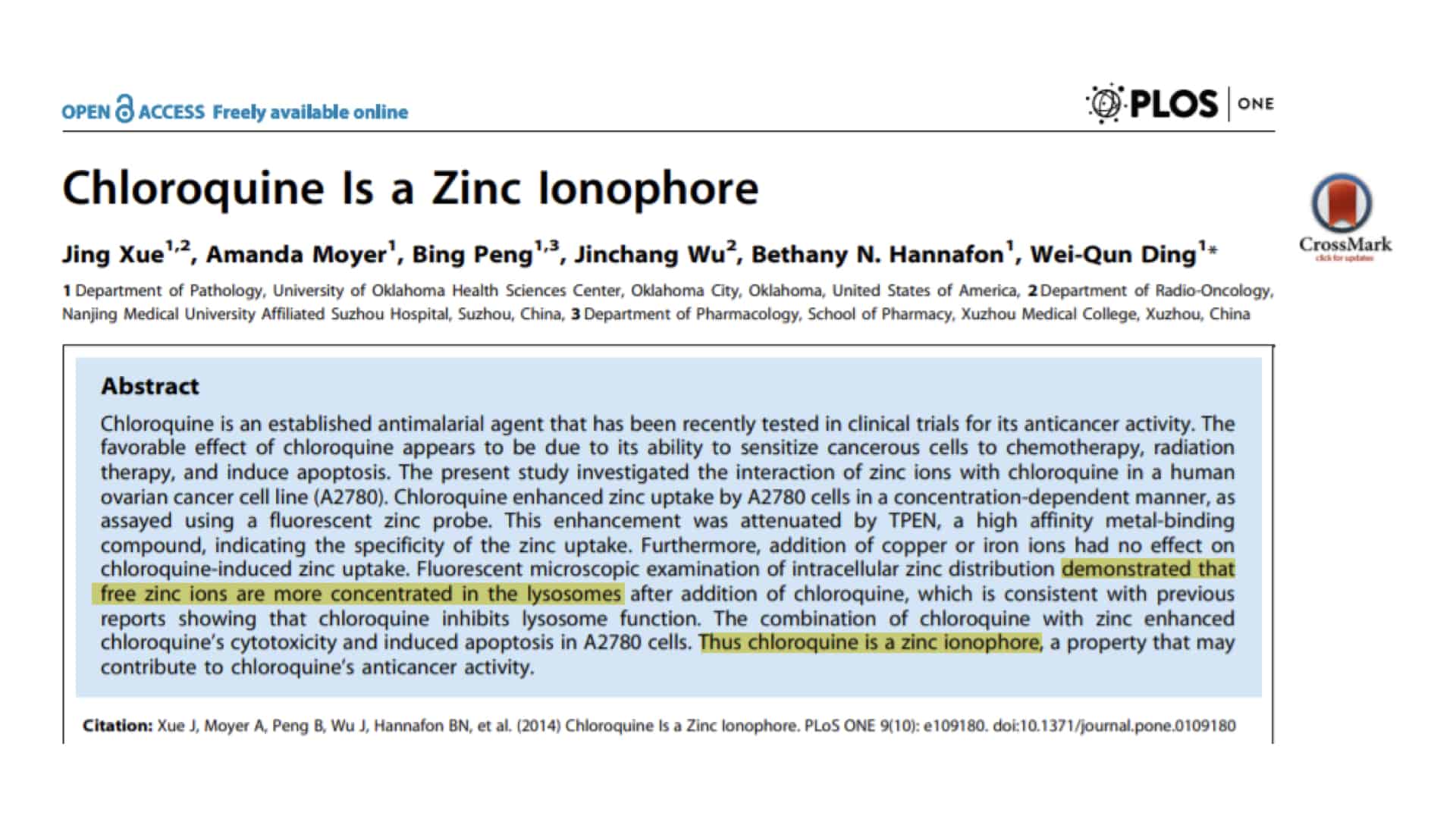
So why is this medication having such success in some individuals? First, it acts as a zinc ionophore, meaning it binds to zinc and pushes it into the cell. Eventually, it reaches the cellular machinery like the Golgi apparatus, the mitochondria, as well as other parts, including those that allow for DNA and RNA replication.
On simpler terms, hydroxychloroquine disrupts the hijacking of the cell by the virus. If the virus were to get into it, it could replicate itself and take over. This treatment, in theory, prevents the virus from doing so.
Some Background
Again, while some patients have had success with hydroxychloroquine, also known as Plaquenil, this medication does come with a cost and should never be taken as a preventative measure. In addition to malaria, it is used to treat rheumatological lupus, rheumatoid arthritis, and even juvenile rheumatoid arthritis.
However, to treat these, most doctors prescribe about 400mg broken up over two doses in the period of one day. In the treatment of COVID-19, some doctors have been known to prescribe as much as 600-800mg per day, injecting patients with nearly two times the normal dose for rheumatological patients.
The Risks of Hydroxychloroquine
Even at the lower prescription of 400mg per day toxicity can occur. Therefore, patients receiving as much as 600-800mg are likely to experience some sort of toxicity issue. In fact, one of the trials that used this drug as a treatment for the coronavirus was stopped because of the toxic impact.
Specifically, it is known as a cardiotoxin, a retinal toxin, and a neurotoxin, with the effects of the neurotoxicity oftentimes being permanent. This means that once the damage is done, there is no healing from it.
The Risk-Benefit Ratio
With this medication, like many others, it is important for patients to weigh the risk-benefit ratio; meaning, it is vital to consider whether the side effects of the medication outweigh the benefits of the medication. Ultimately, it’s a personal decision that each individual will need to make after researching and discussing the side effects with his or her doctor.
The one exception might be if a person is so severely ill that it will likely lead to death. In that case, the benefit would certainly outweigh the risks and the medication would be worth taking.
What About An Alternative to Hydroxychloroquine?
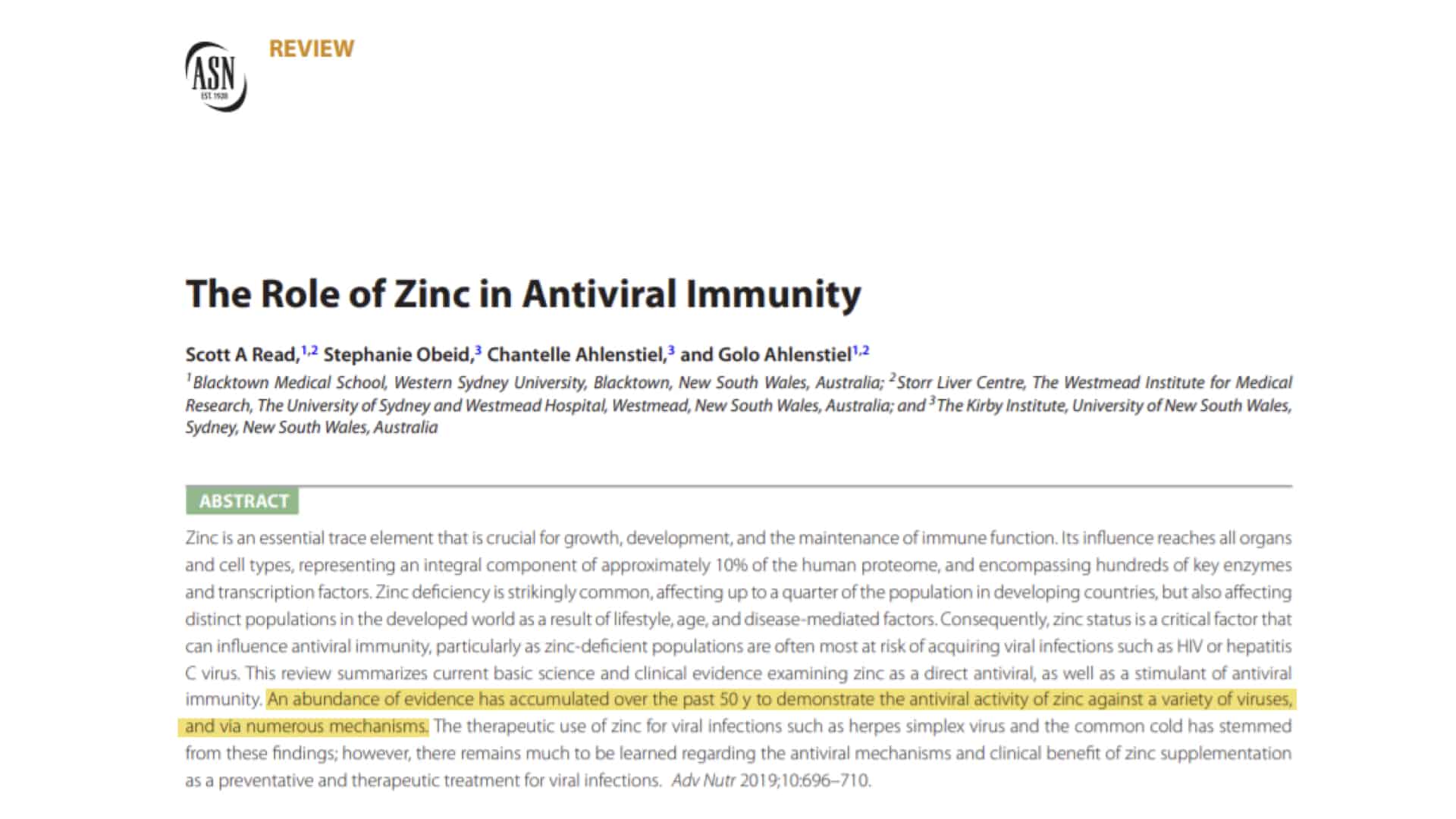
Now that some background on hydroxychloroquine has been provided, it is obvious that what this medication is really doing is leading zinc into the cell to help fight and block the virus from entering it and replicating itself. This begs the question, is there an alternative to this drug that will do the same thing without all of the harmful side effects?
Fortunately, there are a few natural supplements that may help with this, but first, it’s vital to understand why zinc is so important.
Zinc
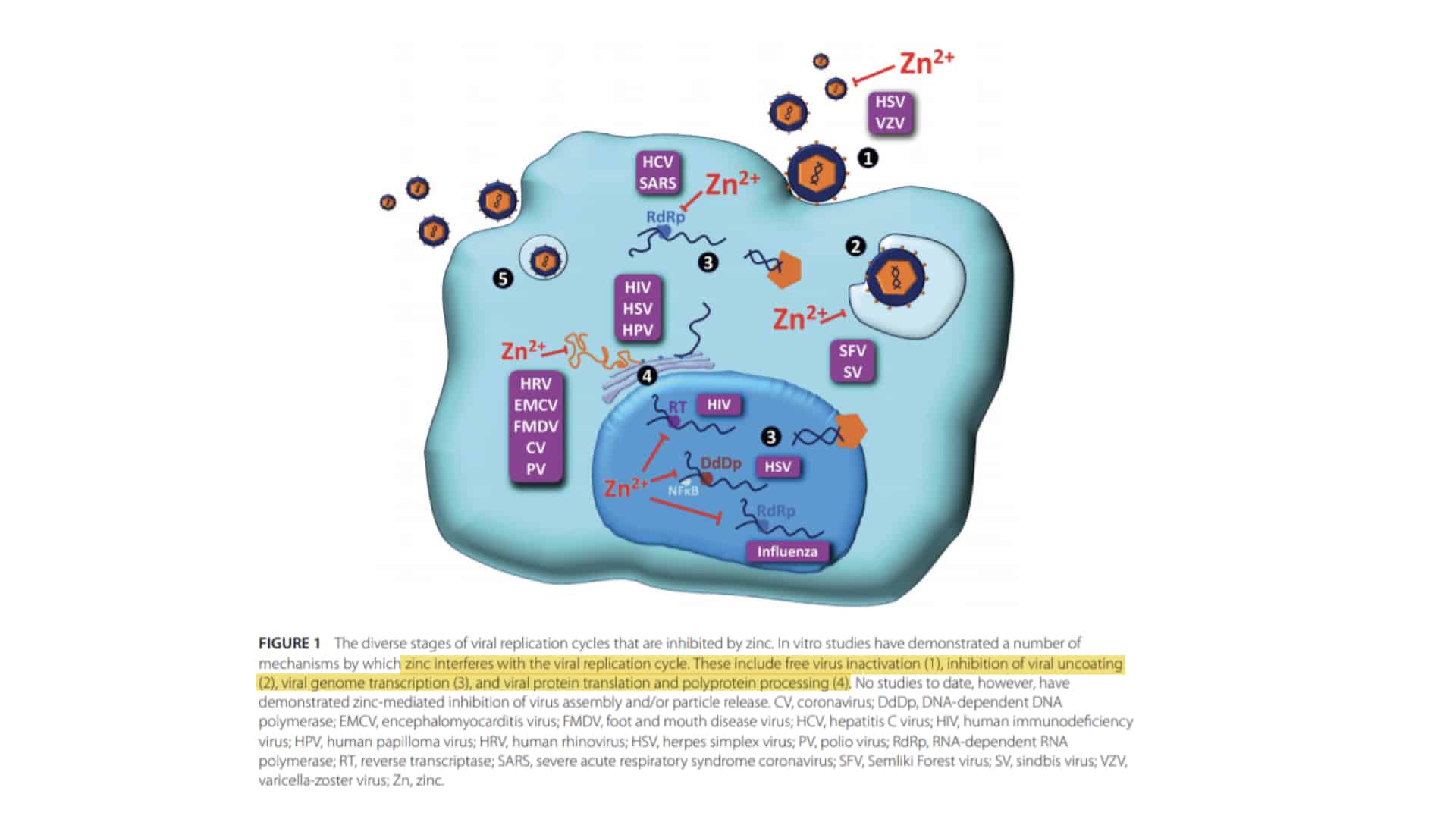
Zinc has been shown to have a significant impact on viruses and has a long, positive track record in human patients. Many of its benefits include reducing:
- The viral load
- The duration and severity of the outbreak
- The recurrence of the outbreak
- The severity of symptoms
So how exactly does it do all of this? First, it interferes with the viral replication cycle. This then leads to viral inactivation, the inhibition of viral uncoating, and has an impact on the viral genome transcription component, the viral protein translation, and polyprotein processing.
Additional Roles
Zinc plays a huge part in the functioning of the body and is thought to be involved in several hundred different chemical reactions, including those that aid the body in recovering from viral infections. One of the ways it does this is through the enzyme SOD or superoxide dismutase.
SOD is an extremely potent and powerful antioxidant. When a virus occurs, it often causes a buildup of free radicals in the body. The more antioxidants available, the better protected the body will be.
Quercetin and Epigallocatechin-Gallate
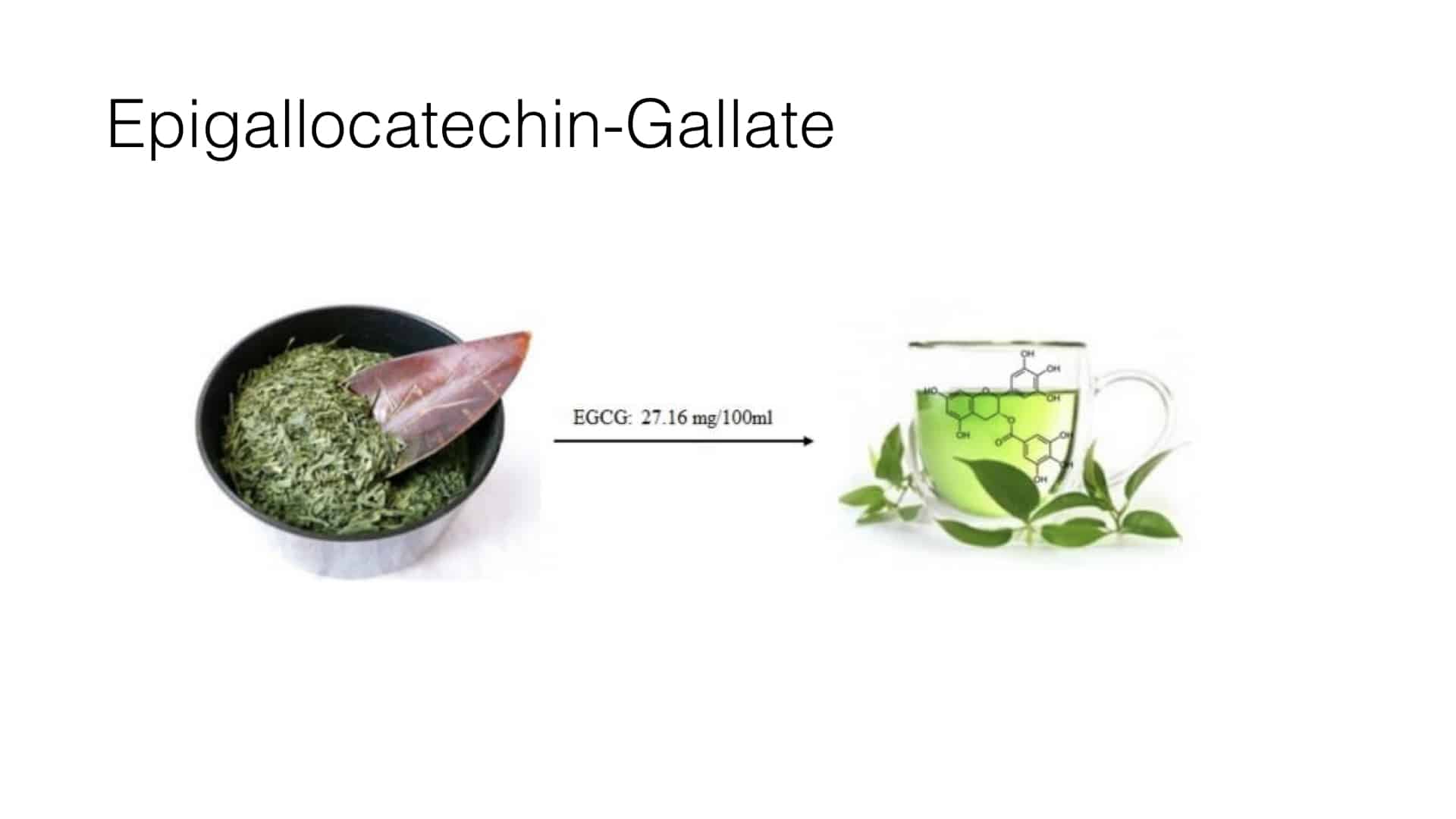
So, again, what can be taken that isn’t going to have a toxicity effect, but will still improve the process of getting zinc into the cell? Well, it is known that polyphenols help transport zinc across the plasma membrane independently of plasma membrane zinc transporters. A few common polyphenols that can be taken in through food or supplements are quercetin and epigallocatechin-gallate.
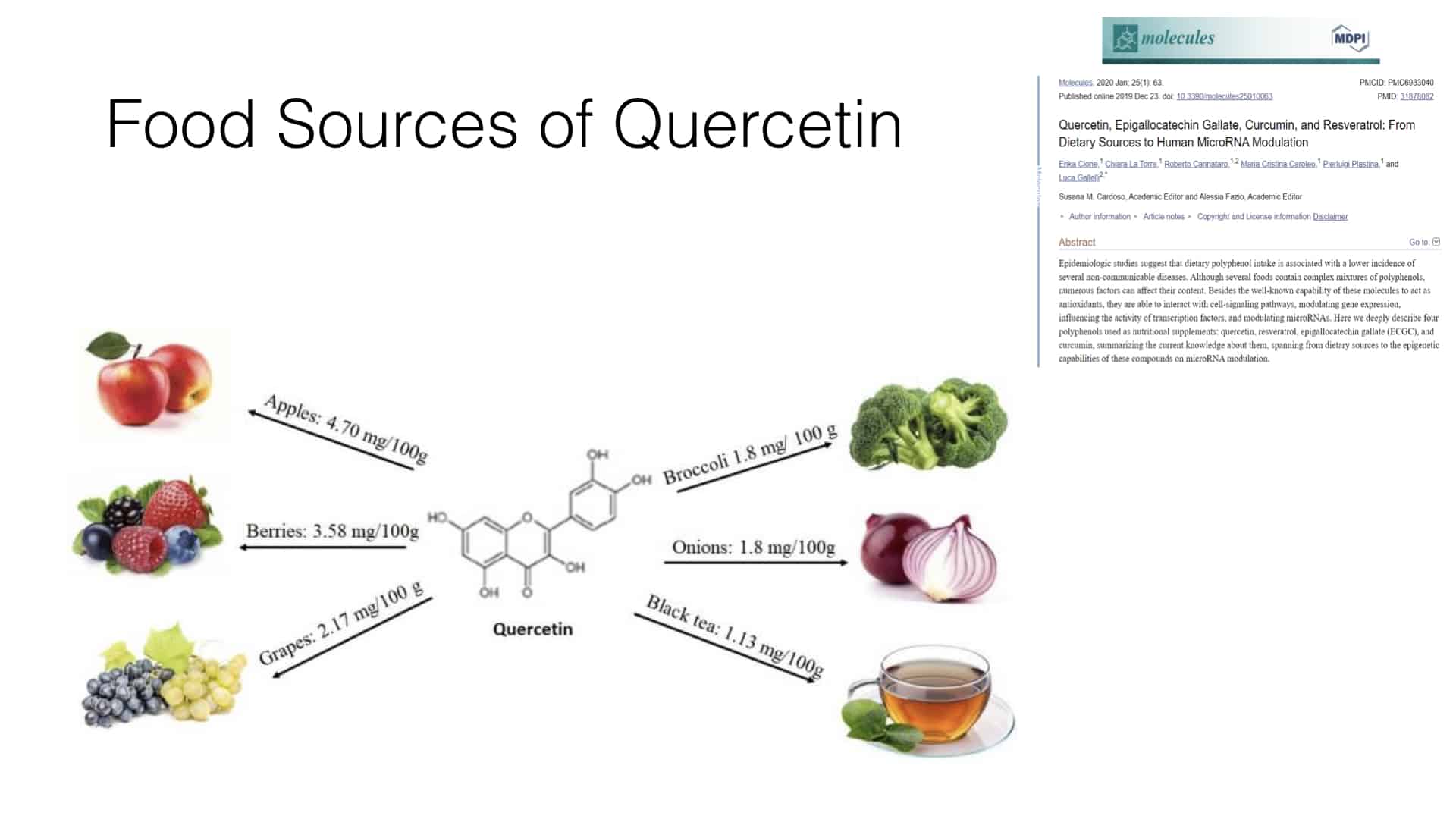
These are both natural, plant-based products that have been identified to increase the concentration of zinc in the cell. Quercetin can be found in broccoli, onions, black tea, grapes, apples, and berries. Epigallocatechin-gallate is primarily found in green tea, and it really has an impact if consumed on a daily basis. While both of these are available as supplements, if choosing to go that route, it’s important to note that quercetin is more bioavailable if mixed with pomegranate.
Preparing the Body
While neither quercetin nor epigallocatechin-gallate will help cure or prevent COVID-19, they both have known beneficial effects for immune function. Furthermore, they will have a similar impact as hydroxychloroquine without the lasting and potentially permanent side effects. Since supplements are scarce right now, try incorporating many of the foods and drinks that promote these polyphenols into your daily diet.
Lastly, let this serve as a reminder to always do your research and speak to your doctor about risks, benefits, and alternatives when it comes to medication. As a patient, you have every right to know all the details before making a decision on your health. Don’t be afraid to speak up and ask questions, as any good doctor will encourage you to do.

The prescription for hydroxychloroquine (HCQ) is only for 5 – 10 days for covid-19 positive patients. A US top infectious disease specialist, (Dr Stephen Smith – founder of the Smith Center for Infectious Disease and Urban Health) has said the quantity should depend on a person’s weight regarding treating patients. Dr Smith has had success with this prescription with zinc and azithromycin and has not seen any side effects. If someone is having issues with breathing, the benefits surely would be worth it. Doctors like Texas MD, Dr Ivette Lazano (Lazano Medical Clinic) has seen breathing issues resolve within hours and fevers break within 48 hours. A top French epidemiologist (Dr Didier Raoult) gave 1,061 patients with covid-19 a prescription of HCQ and azithromycin and found zero side effects with about 91% effectiveness. A cardiologist (Dr Ramin Oskoui, Foxhill Cardiology) has prescribed it with zero side effects except one person with slight nausea (worth it to avoid the ICU). An LA doctor, (Dr Anthony Cardillo, CEO & Medical Director, Mend Health) has done research and found effectiveness with prescribing both HCQ and zinc together to attack and stop the virus replication, azithromycin is prescribed for secondary bacterial infections. He gave the cocktail to only those patients that were heading toward severe symptoms which was only about 5% of his 95 patients at the time of the interview.
This drug has been around for about 65 years. This drug has been prescribed to pregnant women and children. My husband took it while living in Africa as well as many others, no one noted any side effects. Could you please reference the pubmed documents and scientific journals with information about the toxicity? Was toxicity with hydroxychloroquine or chloroquine? I hear No one is using chloroquine. Chloroquine has been said to have toxicity. I appreciate any information you can give on what over the counter supplements can help as a prophylactic. What do you think about taking quinine as a supplement or in a high quality tonic water (Fever Tree, sugar free Zevia) with zinc? Quinine was once used as an anti-malarial in tonic water. Can quinine act as a zinc ionophore? A top virologist and researcher mentioned she drinks tonic water with lemon in it daily. Thank you for any research you have done and share that can help us with over the counter remedies.
Thank you for your well reasoned and cogent response, and for your astute observations.
Thank you for bringing these important facts out that were not being provided in the article. It should be noted that zinc and HCQ work most effectively if given early in the infection before the virus can move into the damage from the storm phase.
Do you have a referral source for finding an MD willing to Rx HCC + Z-pak + Zinc Sulfate? The MD’s in my ins network are all under orders (I assume, or MD’s are intimidated) not to RX Plaquenil even though the FDA has approved its use for COVID-19. I’m in WA State and have yet to find one willing to buck the progressive political narrative on HCC. My body, my choice, seems to be functional only if used within the left PC world; but an MD needs to participate for full choice Rx for treatment which the patient and evidence deem reasonable. Thanks for your info and update. Comments?
Thank you for posting this, Dr. Osborne. I searched “HCQ gluten” and yours was the first link that popped up.
I have some HCQ on hand and have been considering taking it as a preventative having read that one only needs to take one pill a week, but I’m afraid to take it!
I’ll stick to the quercetin and zinc.
Thanks, again.